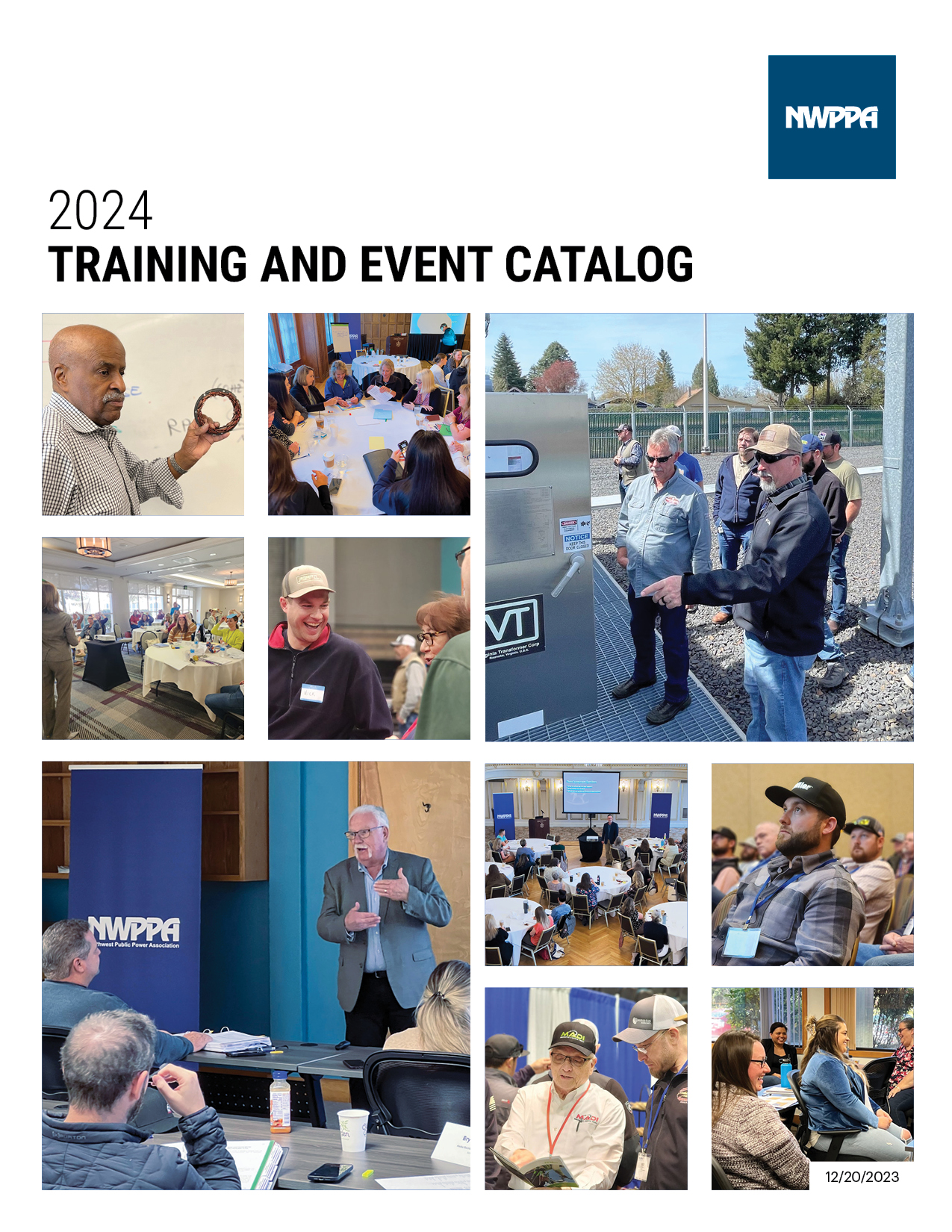|
Engineering Webinar Series: All 12 Webinars
Date(s):
January 19 — December 12, 2023
Venue:Online
Description:Who Should Attend:
Engineering personnel and others who would benefit from an understanding of current electric utility engineering principles and practices.
Series Overview:
The engineering webinar series is comprised of 12 webinars from January through December 2023. Descriptions for each webinar can be found below. Webinars can be taken individually or as an entire series; by registering for the full series, you will receive all 12 webinars at a discounted price. Group pricing is also available.
2023 NESC Update (Jan. 19)
You will learn about the major changes in the NESC; the 2023 NESC becomes effective February 2023.
Introduction to Substation Design/Operation (Feb. 14)
You will learn the basic layout of substations, purpose of major components, use of transfer buses, and bypass switching. Other issues to be addressed are SPCC options, lightning protection, grounding, and access.
Storm Hardening for Distribution Systems (March 14)
The trend in the industry is to design more resilient systems that go beyond basic reliability. You will review techniques for hardening distribution systems, including increasing weather loading, increasing load factors, upgrading key poles on the system, and undergrounding.
Inspection of In-Service Wood Poles (April 11)
You will review the requirements of the NESC as it relates to pole inspections, and address inspection cycles and methods. Estimating reduced strength of wood poles will also be covered.
Overview of Double Circuit Design (May 9)
While many of the techniques used for single circuits can be applied to double circuits, this session will review unique issues and design considerations applicable to double circuit design, including spacing between crossarms, guying challenges, and framing options.
Mitigation of Animal-Caused Outages (June 13)
Reliability is becoming more important in today’s electronic dependent environment, and animal-caused outages is one area where the utility can improve distribution reliability. You will learn about mitigation for outages caused by animals, such as squirrels and birds, and also talk about substation protection.
Fire Mitigation for Distribution Lines (July 11)
To mitigate the risks of wildfires caused by the electric distribution system, many utilities are fire hardening their systems. You will discuss the electric distribution system components and line equipment and their potential risk for wildfires. You will also review changes in standards for the construction and maintenance of the distribution grid to reduce the risks of wildfires.
Three-Phase, Pad-Mounted Transformers (Aug. 8)
Three-phase, pad-mounted transformers can be expensive items for an electric utility so it is important to understand the industry standards that apply to them, as well as many of the different options available in the marketplace. You will also review the specification and application of these units.
Harmonics and Effect on Power Quality (Sep. 12)
Many power quality issues stem from harmonics often introduced on the power system from inverters, VFD, and other devices. Attend this session to learn about harmonics, IEEE 519, and how to use a k factor in specifying transformers subject to high harmonic connections.
Overhead Conductor Characteristics (Oct. 10)
The purpose of distribution lines is to move energy from one place to another through conductors; the key to reliable, safe, and efficient design is having a good working knowledge of overhead conductors. Therefore, you will discuss electrical and mechanical properties of primary overhead conductors.
Designing Underground for New Subdivisions (Nov. 14)
Designing underground distribution differs from designing overhead distribution in terms of resiliency of the system. You will review common underground design criteria such as methods for design in underground subdivisions and commercial developments; routing of cable systems; and use of conduit, burial depth, and common errors in design. You will also learn about single contingency outage and overcurrent protection scheme along with limiting factors of system components.
Interconnection of Distributed Generation (Dec. 12)
As distributed generation becomes ubiquitous, electric utilities must become more adept at interconnecting these sources to the distribution system. In this session, you will focus on the screening methods for smaller DG units, the impact of smart inverters, and detailed system impact studies if screening fails.
Webinar Recordings:
Webinar recordings can be made available to registrants who are unable to attend live.
Webinar Instructor:
Hi-Line Engineering
Webinar Schedule:
All webinars in this series will be held from 8-9:30 a.m. Pacific Time. Attendees will be admitted 15 minutes before the webinar begins.
How to Participate:
Instructions will be emailed to attendees within 12 hours of the webinar and we recommend that you test the link to the meeting as soon as you get the instructions. The webinar is best viewed using Chrome as your browser. We recommend that you use a landline for both your phone and your internet connections.
This registration is for one person to attend. We manage our webinars on an honor-system basis; if more than one person from a utility wishes to attend, each is to register separately.
Webinar Fees:
Individual Attendee Registration (all 12 webinars):
Utility Member Rate: $1,190
Associate Member Rate: $1,785
Non-Member Rate: $2,380
Unlimited Attendee Registration* (all 12 webinars):
Utility Member Rate: $2,975
Associate Member Rate: $4,465
Non-Member Rate: $5,950
Please visit the event pages for individual webinar pricing.
*If your organization would like to send multiple attendees, please contact Annie Wittenberg at (360) 816-1443 or annie@nwppa.org for further details.
Cancellation Policy:
For webinars, virtual
classes, and section
meetings:
cancellation at least five days prior to the event, full refund; within 1-4
days or no show, 100% of the registration fee.
For in-person events:
cancellation at least 30 days prior to the event, full refund; within 15-29
days, $100 fee; and within 1-14 days or no show, 100% of the registration fee. When possible, please send a substitute instead of canceling; NWPPA does not charge a fee for substitutions.
|

For More Information:
To find out more about this event, or to learn about other events, view the Training and Event Catalog. |
|
|